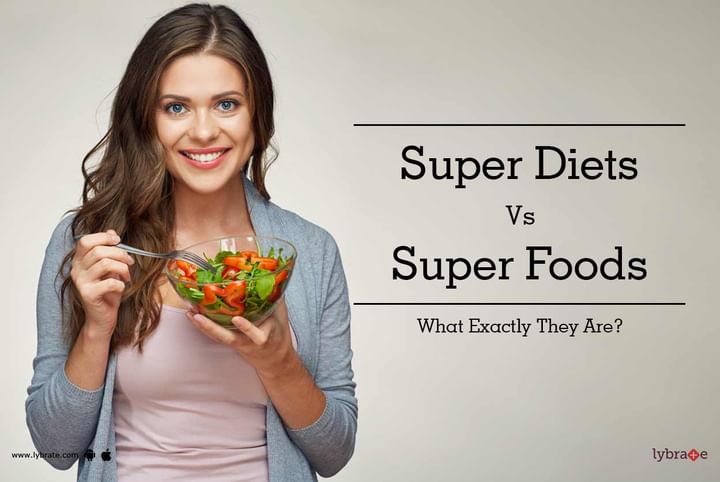Super Diets Vs Super Foods - What Exactly They Are?
There is a palpable buzz around superfoods all over the world. One day quinoa is being hailed as the star among foods and the next day everyone is falling head over heels over the benefits of kuttu (buckwheat).
One wonders what makes certain foods qualify for the ‘superfood’ label. One, they need to be loaded with vital nutrients and vitamins. Second, they need to help in treating or lowering the risk of certain diseases? Let us explore a bit more.
What most of us do not realize is that a lot of superfoods have been around for centuries and our grandparents and ancestors have long been consuming them for their health benefits. It is only now that they have been re-discovered and are hitting the headlines. At the same time, a lot of exotic superfoods are being introduced, which are difficult to source and generally rather expensive.
The food industry wants to persuade us that eating some foods can slow down the ageing process, lift depression, boost our physical ability, and even our intelligence. Had that been the case, mother nature would have created only those foods and not so many kinds of foods, with different nutritive values.
The problem with some of the superfoods being aggressively marketed is that they are exotic in nature. So, unless you have the local or native super foods, not only would they be difficult to source but would also make a huge dent into the pocket. So, one would have something like kale only occasionally. Healthy, yes, but would one consume it every day? Probably not!
We over here prefer to talk about ‘Super Diets’ and like to avoid the use of the term ‘superfoods’. The emphasis is on a healthy, balanced diet, rich in fruits, vegetables and wholegrain foods, which are all easy to source.
So, what should be our strategy to a super diet?
- Eating foods and vegetables that are in season. Seasonal fruits and vegetables provide maximum health benefits and nutritional requirement for that time of the year. For example, bottle gourd (ghiya or doodhi) is a summer vegetable and is widely recommended for weight loss, managing high cholesterol and hypertension. But one must remember that since it is rich in water content (96 gm per 100 gm), it’s consumption during winters will not be as beneficial for our body. This is because it helps to reduce our body heat whereas in winters we want to trap the body heat to maintain our body temperature.
- Going local and consuming foods that are native to our region. Let’s make the best of what is available locally. Our humble jamun available during summers, is very high in Vitamin C content and works as an immunity booster. But, the trend is growing towards consumption of imported, dried cranberries which also give the same nutrition, but at a much higher cost. What we forget is that since jamun is a native fruit, our body is inherently adapted to digesting it better and getting the maximum benefit from it.
- Adopting unprocessed foods from all major food categories. As far as possible, we should banish processed and packaged foods from our shopping basket. For example, readymade breakfast cereals like wheat flakes have added preservatives, hidden sugars and are processed (extrusion method) such that when compared to the old, whole grain wheat dalia, they have far lower nutritional value.
- Focusing on getting our five portions of fruits and vegetables in a day. Eating a variety of foods ensures we get a wide variety of the nutrients our body needs. Fruits and vegetables have differed colours to indicate a different set of vitamins and minerals. So, include as many colours as you can in a day for a super-diet.
- Adjusting our diet based on our needs, ability to digest and medical conditions. For example, soya and its products are a blessing for adding proteins to a vegetarian diet, but if consumed by people with thyroid problem, it can interfere with proper absorption of medicine by the body.
Remember, there are no miracle foods and consuming a certain food is not going to undo the damage caused by unmindful eating. Any food when eaten at the right time and in the right combination shall keep us in good health. A balanced super diet far outweighs any super food in terms of the wholesome nutrition it provides our body. If you wish to discuss about any specific problem, you can consult a dietitian-nutritionist.



+1.svg)
